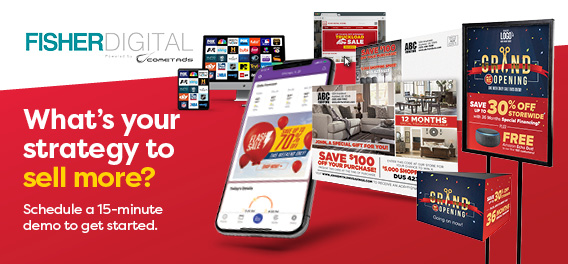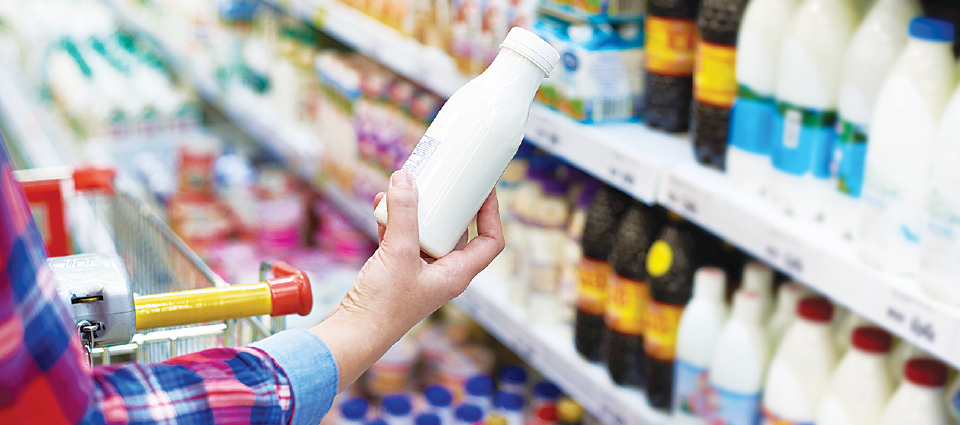Why Private Label Brands Matter
June 11, 2018Private label brands recently started splashing headlines in grocery-industry publications. Northeastern supermarket chain ShopRite just debuted its own private label brand, the ShopRite Trading Company. And Kroger’s CEO recently told Winsight Grocery Business that it’s private label brand Simple Truth accounted for almost 10% of its total annual sales in 2017.
Most customers no longer regard private label brands as cheap knockoffs. Private Label Brands is a $166 billion industry that’s outpaced national brands by 8 times. We will examine growth in private label brands, examine consumer attitudes and spending and outline some best practices for marketing private label brands in-store in this article.
Private Label Brand Growth
“In the U.S., …, we’ve seen a performance reversal among private-label and manufacturer-branded products over the past year. While manufacturers of all sizes saw flat or positive performance in the fourth quarter of 2016, store-branded products took the lead a year later, growing at 2%,” Nielsen wrote in “The Rise and Rise Again of Private Label” report released in 2018.
Private Label brands are growing three times faster than national brands. Consumers like to pick products based on their personal preferences for ingredients, manufacturing techniques and prices. The label on the package matters less than their personal preferences, FoodDive reported. And grocers like private label brands because they get more control over what goes into products than they do with national brands.
Kroger’s Simple Truth private label brand accounted for $2 billion of its total $20.9 billion sales in 2017, which is about 10%. Costco’s private label Kirkland Signature brand makes up about 25% of the company’s total sales. And Private label brands make up 90% of Lidli & Aldi’s product mixes.
Private label brands are also gaining traction in the snack category. Private label brands took 10% of the snack market in 2017, which is up from 4.8% the previous year.
Private Label Brand Preferences
Public perception about private label brands is shifting. 97% of all US households bought a private label brand product in the last year. A Consumer Reports tester found that 58% of private label products were as good or better than national brands.
In general, Millennials are the most willing to try new brands, including private label. Overall, North American consumers have positive thoughts about private label brands:
• 71% say “I am smart when I buy private label” (vs. 58% global average)
• 71% say “I purchase private label to save money” (vs. 70% global average)
• 78% say “It’s important to get the best price on a product” (vs. 69% global average)
• 62% say ”Private labels are usually extremely good value for money” (vs. 67% global average)
• 58% say “Private labels are good alternative of name brand” (vs. 65% global average)
• 76% admit that their “perceptions about private label quality has improved over time” (vs. 71% global average)
Overall, private label brands account for 17-18% of total consumer expenditures. Shoppers say that food/beverage is the most important category to offer private label products—trumping categories like health care, pet care and personal care.
Even though Millennials are the most willing to try new products, it’s Gen X that is driving most private label product sales. Private label buying behavior by generation (% of PLB UPC product purchases):
• 31% Gen X
• 19% older Millennials
• 19% younger Boomers
• 16% older Boomers
• 12% retirees and seniors
• 3% younger Millennials
74% of consumers say private label brands are a better value for the money and 84% of consumers say that private label brand quality is “at least as good” as national brands. Six in 10 customers want to see more private labels with a presence in the fresh category (organic, seasonal, local and sustainable products).
Customers are the most interested in private label products in these categories:
• single-serve coffee/tea
• salty snacks
• cheeses
• specialty milk
• frozen appetizers
• frozen pizzas
• vitamins
• frozen seafood
• bacon
• value-added meat
• deli dips
• deli entrees/salads
• bakery cookies
Private Label Marketing Strategies
The Food Marketing Institute outlined best practices for marketing private label brands in it’s “The Power of Private Brands” webinar broadcast earlier this year. We will share our top takeaways from this webinar in this section.
The 4 P’s of private label brands:
1) Product: the higher the degree of uniqueness, the more loyal customers are to the PLB. Distinct correlation between uniqueness & loyalty.
2) Price: Check prices constantly to prevent national brands from undercutting PLB. An estimated $147 million was lost in sales by national brands undercutting PLBs in 2017.
3) Promotion: Targeted approach works much better than a one-size-fits-all approach.
4) Placement: Natural/organic PLB products tend to have the best results.
Keys to attract shoppers:
• lifestyle solutions
show how private brands represent solutions to everyday challenges/needs
• wellness
private label brands are better for you
• show value
explain how is this a better deal for customers
• drive engagement
provide ways for customers to interact with the brand
• exclusively available
these products are drawing shoppers
• look for ways to drive engagement in-store
in-store tastings, shelf signages, etc.
• customer attitudes spending are shifting beyond price to a quest for alignment with personal values, looking for brands that are:
• authentic
• ethical
• sustainable
• securing customer info

